
Increase minimal salary entails a number of benefits, most notably unemployment benefits, said the labor minister Kostis Hatzidakisfollowing a statement by the Prime Minister Kyriakou Mitsotakis for raising the minimum wage to 780 euros.
At a press conference, the Minister of Labor said that a total of 19 benefits are being increased. Regarding unemployment benefits, he noted that in 2019 it was 399 euros, and now it reaches 479 euros.
He also said that the minimum daily wage is 34.84 euros.
As K. Hatzidakis pointed out, the third increase in the minimum wage means a 20% increase over the past two years, with about 600,000 workers paid under this scheme receiving up to three additional net earnings compared to 2019.
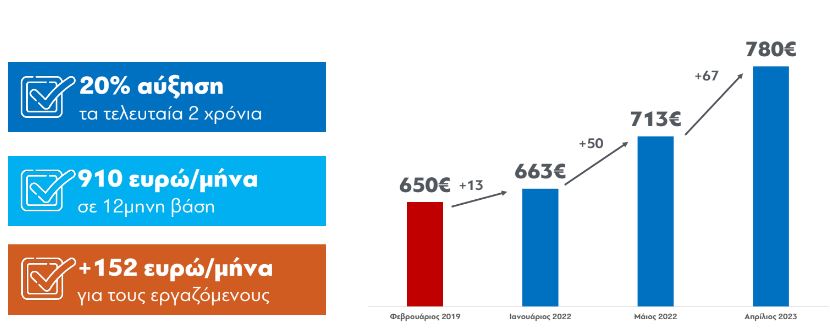
The Minister of Labor spoke of an increase “driven by the increased needs of workers, but also based on the development of the economy.”
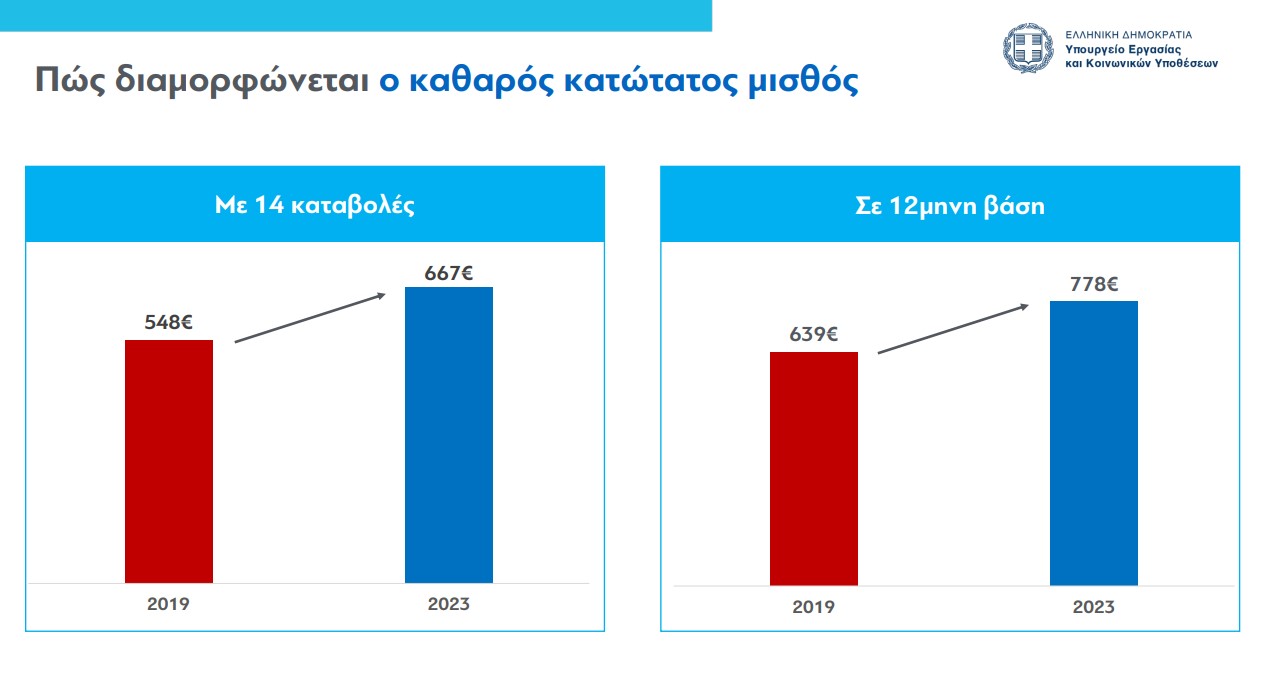
As for the three years, he said they have been regulated since 2012 and four different governments have implemented the rule. According to him, those who worked for at least three years before February 2012 have additional salaries that can reach up to 30%, depending on the length of service.
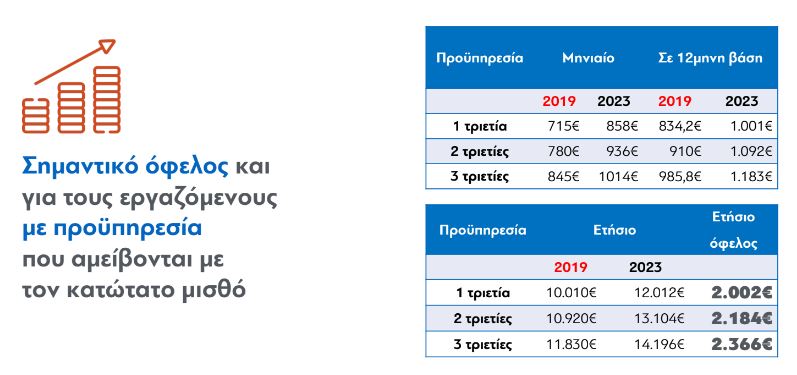
Other payments that increase after the increase in the minimum wage
Benefit: Amount
- Special maternity allowance: minimum wage
- Child care allowance: minimum wage
- Unemployment benefit: 13 per diems
- Allowance for a three-month stay on the unemployment register: 15 daily allowances
- Released allowance: 15 daily allowances.
- Work support: 20 per diem
- Insolvency of the employer: up to 3 salaries
- Seasonal builders: 70% of 37 days’ wages
- Nagar season: 70% of 50 daily earnings
- Seasonal for artists, theatres, tourism: 70% of 25 days’ earnings
- Other seasonal (resin joiners, tobacconists, potters-ceramists-brickers and shipyard workers): 70% of 35 days’ wages
- Self-employment benefit: Monthly unemployment benefit
- Work benefit: 50% of unemployment benefit
- EPA.S. Student Compensation: 75% of Daily Salary
- Internship allowance (IEK DYPA): 80% of the minimum wage.
- Gaining Work Experience: Minimum Wage
- Social Security Programs: Minimum Daily Wage
- Employment programs: Subsidy 50% – 90% of the minimum wage
- For working students taking exams: 30 days’ wages for undergraduates / 10 days’ wages for graduate students
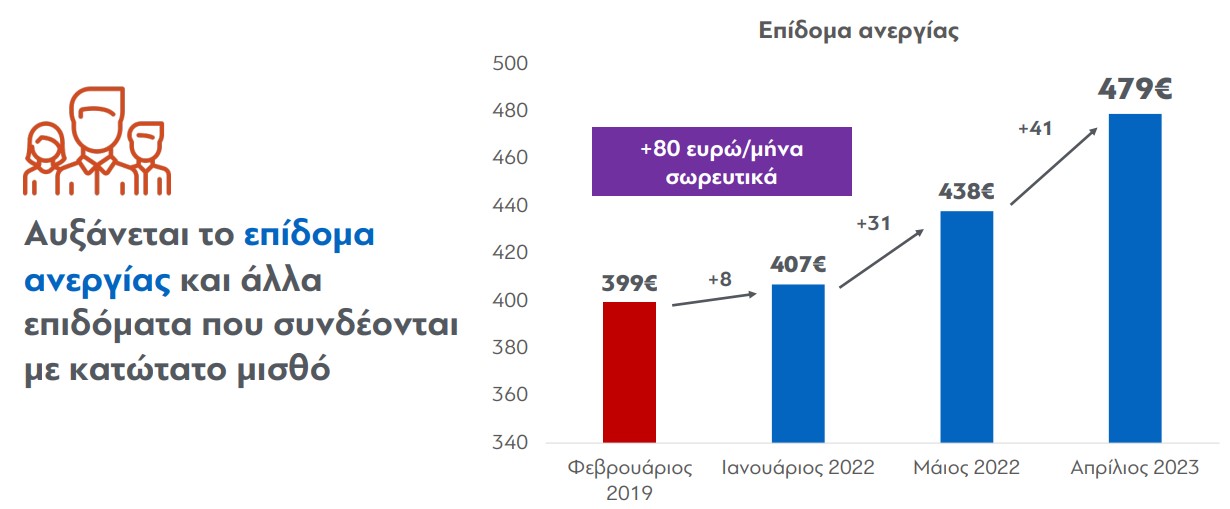
At 780 euros minimum wage
It is reminded that as stated earlier by Prime Minister Kyriakos Mitsotakis, the minimum wage has been set at 780 euros since 1 April. During the meeting at Megaros Maximos, the Prime Minister noted that the minimum wage increase is 9.4%.
The Prime Minister indicated that the new increase would affect unemployment benefits and all benefits related to the minimum wage. He also said that “the final agreed amount is at the upper limit of our ability, but well within the business’s ability.”
According to him, this is the third consecutive increase in the minimum wage. “From April 1, it will reach 780 euros, from 650 in 2019,” he said, adding: “Since then, almost three additional salaries have been added to the income of approximately 600,000 employees every year.”
“I have no illusions. We know that wages in our country are still low and are being further squeezed by imported inflation. This new increase obviously does not solve the problem, but it certainly provides a very important relief and, above all, indicates our intention to raise wages in both the public and private sectors,” he said.
He also stated that the national economy remains in strong momentum and stressed that “it is time to support workers with a bold increase in base wages, because development dividends must be received fairly by all.”
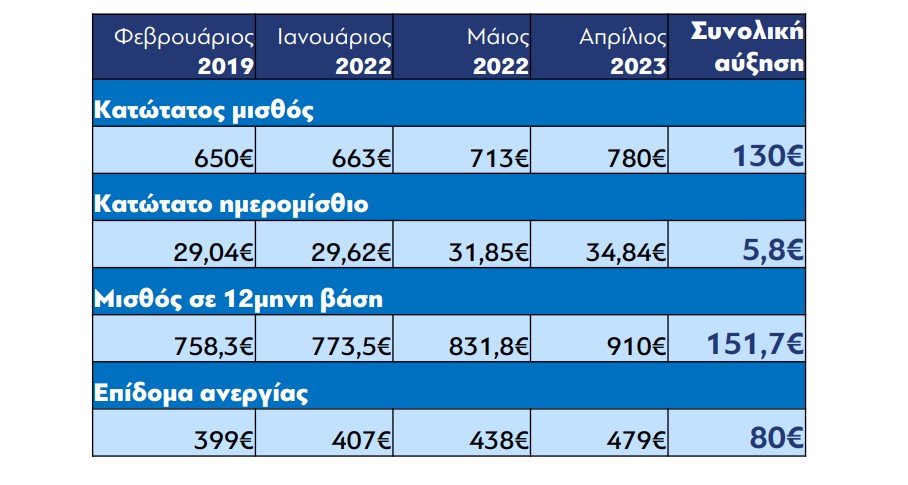
Source: Kathimerini
Lori Barajas is an accomplished journalist, known for her insightful and thought-provoking writing on economy. She currently works as a writer at 247 news reel. With a passion for understanding the economy, Lori’s writing delves deep into the financial issues that matter most, providing readers with a unique perspective on current events.